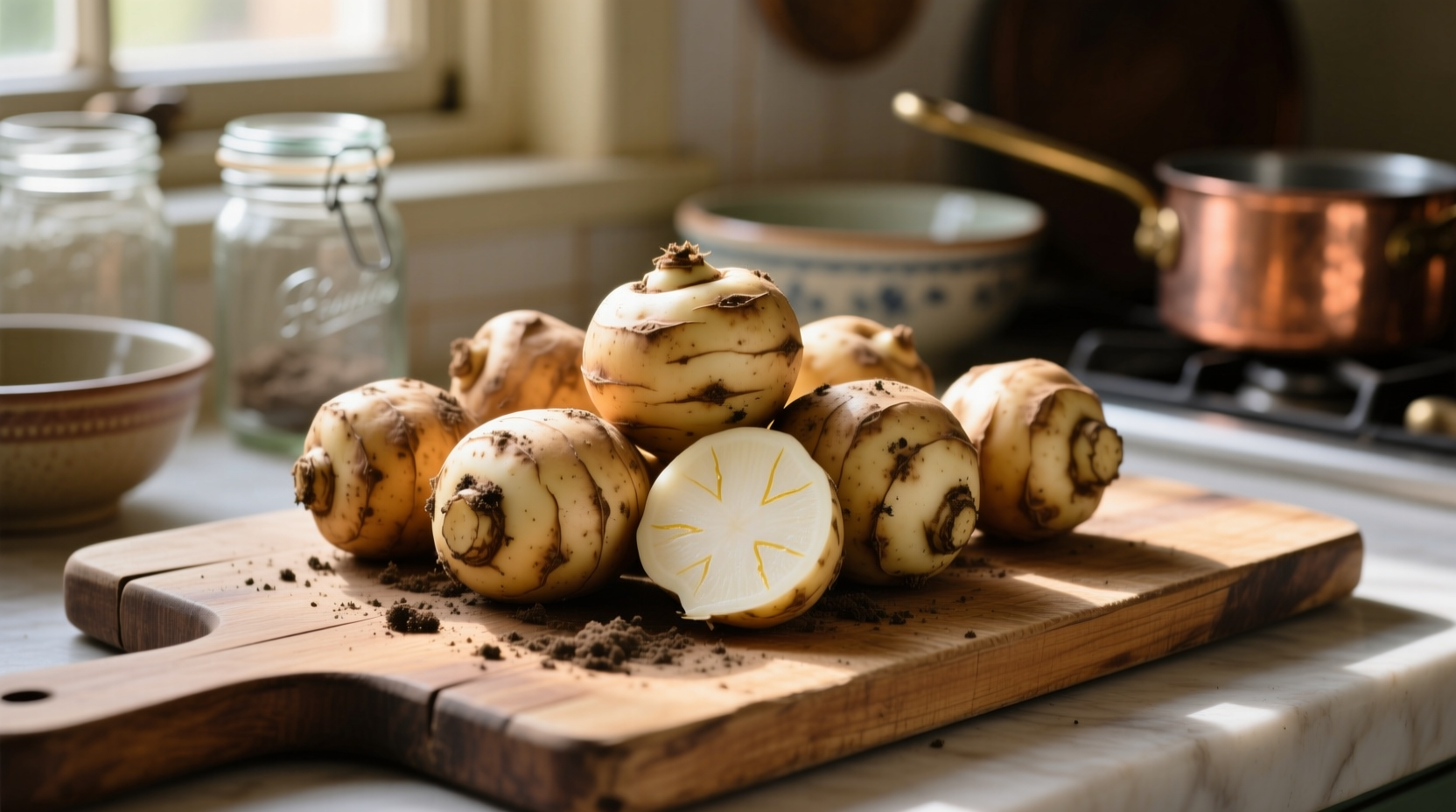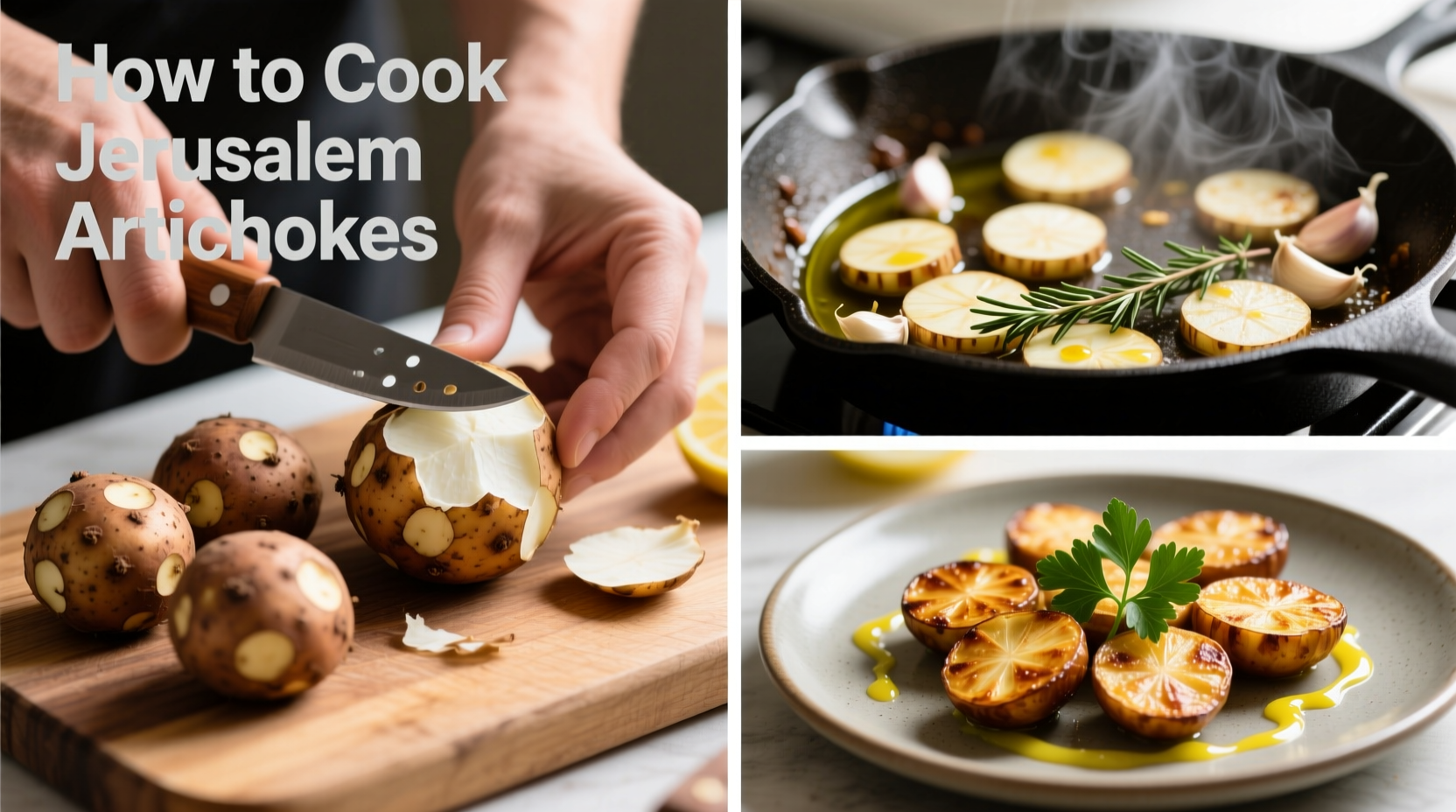Unlock the Delicious Potential of Jerusalem Artichokes
Many home cooks avoid Jerusalem artichokes due to their challenging preparation and reputation for causing digestive issues. But with the right techniques, these nutty, sweet tubers can become a winter favorite. Unlike true artichokes, Jerusalem artichokes (Helianthus tuberosus) aren't related to artichokes nor from Jerusalem—they're the edible tubers of a North American sunflower species. This comprehensive guide reveals professional chef-tested methods that transform these knobby vegetables into culinary delights while minimizing common pitfalls.

What Makes Jerusalem Artichokes Unique
Understanding these tubers' properties is crucial for successful cooking. Jerusalem artichokes contain inulin, a carbohydrate that humans can't fully digest, which explains their reputation for causing gas. However, proper preparation significantly reduces this issue. Unlike potatoes, they have thin, delicate skin that's difficult to peel conventionally due to their irregular shape.
| Nutrient (per 100g) | Raw Jerusalem Artichoke | Cooked Jerusalem Artichoke |
|---|---|---|
| Calories | 73 kcal | 68 kcal |
| Dietary Fiber | 1.6g | 2.0g |
| Inulin Content | 17.6g | 14.2g |
| Potassium | 169mg | 155mg |
Source: USDA FoodData Central, National Nutrient Database for Standard Reference
Selecting and Storing Your Sunchokes
Choose firm, heavy tubers without soft spots or deep cuts. Smaller sunchokes tend to be more tender. Avoid those with green sprouts, which indicate age. Store them in a cool, dark place like a root cellar or refrigerator crisper drawer for up to 2 weeks. Place in a perforated plastic bag with a damp paper towel to maintain moisture without promoting rot.
Preparation: The Key to Success
Peeling isn't necessary and wastes precious edible portions. Instead:
- Scrub thoroughly with a vegetable brush under cold water
- Soak in acidulated water (1 tbsp lemon juice per quart of water) for 10 minutes to prevent browning
- Trim only damaged areas with a paring knife
- Leave skin on for most cooking methods to retain nutrients and texture
For those sensitive to inulin, try this chef-recommended technique: soak sliced sunchokes in cold water with vinegar (1:4 ratio) for 30 minutes before cooking. This helps break down some inulin while preventing oxidation. Cornell University's agricultural extension confirms this method reduces digestive discomfort while preserving nutritional value.
Four Foolproof Cooking Methods
1. Perfect Roasted Jerusalem Artichokes
The dry heat of roasting caramelizes natural sugars while breaking down inulin:
- Preheat oven to 400°F (200°C)
- Toss scrubbed, quartered sunchokes with 1 tbsp olive oil, 1 tsp rosemary, salt, and pepper
- Spread on parchment-lined baking sheet
- Roast 25-30 minutes until golden and tender when pierced
2. Creamy Sunchoke Soup (Digestion-Friendly)
Boiling breaks down inulin more effectively than other methods:
- Simmer scrubbed sunchokes with onions and garlic in vegetable broth for 20 minutes
- Add 1 peeled potato to balance texture and reduce inulin concentration
- Blend until smooth with a touch of cream
- Finish with chives and a drizzle of truffle oil
3. Quick Sautéed Sunchokes
Ideal for weeknight meals:
- Cook sliced sunchokes in butter over medium heat for 15-18 minutes
- Add fresh thyme during the last 5 minutes
- Finish with lemon zest for brightness
4. Raw Preparation for Salads
For those with sensitive digestion, limit raw consumption:
- Use a mandoline to slice paper-thin
- Soak in acidulated water for 15 minutes
- Combine with apples, walnuts, and a light vinaigrette
- Consume in moderation (1/4 cup serving)
| Cooking Method | Time Required | Digestive Impact | Best For |
|---|---|---|---|
| Roasting | 25-30 minutes | Moderate | Side dishes, meal prep |
| Boiling | 20-25 minutes | Lowest | Soups, purees |
| Sautéing | 15-18 minutes | Moderate-High | Quick meals, stir-fries |
| Raw | 10 minutes | High | Salads (small portions) |
Flavor Pairings That Shine
Jerusalem artichokes have a delicate nutty-sweet flavor that pairs beautifully with:
- Herbs: Rosemary, thyme, sage
- Acids: Lemon juice, apple cider vinegar
- Fats: Brown butter, olive oil, cream
- Complementary vegetables: Parsnips, carrots, apples
Avoid overpowering them with strong spices. Instead, enhance their natural flavor with subtle additions like a pinch of nutmeg in soups or fresh herbs in roasted preparations. Professional chefs recommend finishing with flaky sea salt just before serving to highlight their delicate sweetness.
Storage and Leftover Tips
Cooked sunchokes keep well in airtight containers:
- Refrigerate for up to 4 days
- Freeze pureed soups for up to 3 months
- Revive roasted pieces by reheating in a 350°F oven for 10 minutes
- Transform leftovers into fritters by mixing with egg and breadcrumbs
When storing raw sunchokes, check periodically for soft spots. Unlike potatoes, they don't develop harmful solanine when sprouting, but quality deteriorates quickly once sprouts appear.











 浙公网安备
33010002000092号
浙公网安备
33010002000092号 浙B2-20120091-4
浙B2-20120091-4